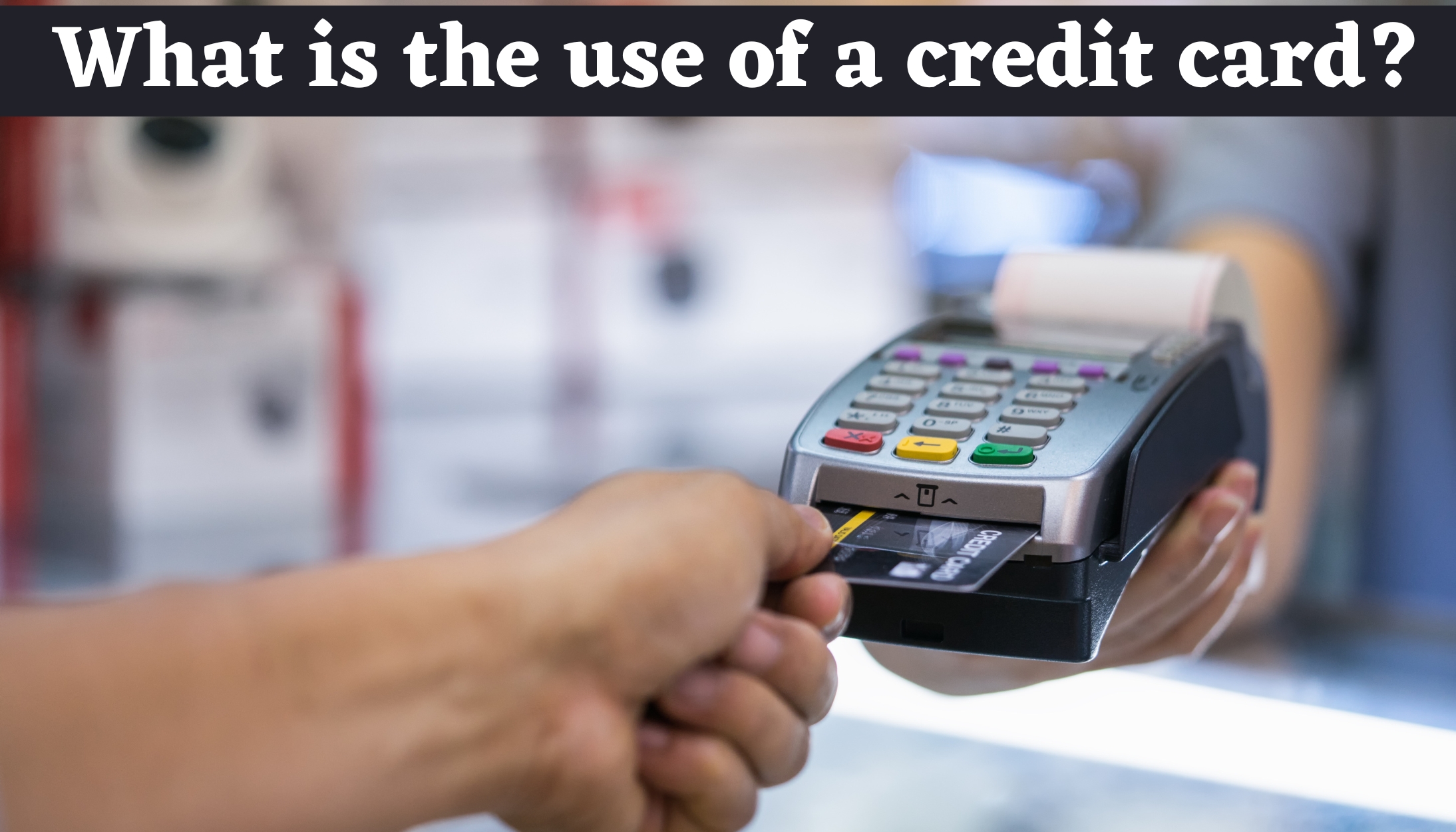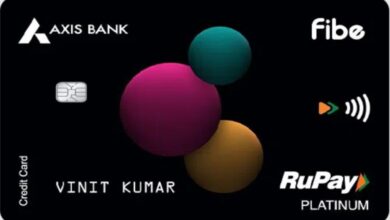What is the use of a credit card?

A credit card is a payment card that enables users to borrow money from a financial institution in order to make purchases or withdraw cash. It allows people to access credit and make purchases without carrying cash. Credit cards offer many benefits and are widely used for both personal and business purposes.
- Convenience: Credit cards allow users to make purchases or withdraw cash from ATMs without carrying cash. They are especially convenient for online shopping, as well as for making purchases when traveling abroad.
- Rewards and benefits: Many credit cards offer rewards programs that provide users with points, miles, or cashback for every purchase they make. Some credit cards also offer additional benefits such as extended warranty protection, rental car insurance, or travel accident insurance.
- Building credit history: Using a credit card responsibly and paying bills on time can help users build a positive credit history, which can be beneficial when applying for a loan or a mortgage.
- Fraud protection: Credit cards come with built-in fraud protection features that allow users to dispute unauthorized charges and get their money back if their card is lost or stolen.
- Borrowing power: Credit cards allow users to borrow money from a financial institution, which can be helpful in an emergency or when making a large purchase.
In conclusion, credit cards are a convenient and flexible tool that offer many benefits, including rewards, fraud protection, and the ability to build credit history. However, it is important to use credit cards responsibly and to pay bills on time in order to avoid high interest rates and fees.
- Flexibility: Credit cards offer flexibility in terms of payment options, with the ability to pay in full each month or to make minimum payments over time with interest. This can be especially helpful for managing cash flow and budgeting expenses.
- Increased purchasing power: With a credit card, users have access to a line of credit that they can use to make purchases or withdraw cash up to a certain limit. This can be useful for larger expenses or emergencies, as long as users pay their bills on time and manage their credit card balance carefully.
- Financial management tools: Many credit cards offer online or mobile banking tools that allow users to monitor their spending, set up alerts for large purchases, and view their account activity. These tools can help users stay on top of their finances and make informed spending decisions.
- Special financing offers: Credit card issuers often offer special financing promotions such as 0% APR on purchases or balance transfers, allowing users to take advantage of lower interest rates or deferred interest on large purchases.
- Increased security: Credit cards are equipped with chip technology and other security features that help to prevent fraud and unauthorized use. In addition, most credit card issuers offer fraud protection services that monitor transactions and alert users to any suspicious activity.
credit cards are a powerful tool that offer many benefits to users. Whether used for everyday purchases, travel, or larger expenses, credit cards can help users manage their finances, build credit, and enjoy rewards and benefits. However, it is important to use credit cards responsibly and to stay on top of payments in order to avoid high interest rates, fees, and potential damage to credit scores.
- Ease of tracking expenses: With a credit card, all purchases are recorded in a single account, making it easier to track expenses and monitor spending. This can be especially helpful for business owners who need to keep track of their expenses for tax purposes.
- Universal acceptance: Credit cards are widely accepted around the world, making them a convenient form of payment for travelers. This eliminates the need for currency exchange and makes it easier to make purchases in foreign countries.
- Emergency funds: In times of financial hardship, a credit card can be used as a source of emergency funds. This is especially useful for those without an emergency savings fund, as long as they are able to pay off the balance in a timely manner.
- Credit score improvement: Consistently using a credit card and paying bills on time can help improve a person’s credit score over time. A good credit score can lead to more favorable loan and mortgage rates, as well as better credit card offers and higher credit limits.
-
- Interest-free financing: Some credit cards offer introductory interest-free financing periods on purchases or balance transfers. This can be especially beneficial for users who need to make a large purchase or transfer a high-interest credit card balance, as long as they are able to pay off the balance before the end of the promotional period.
- Online security: Credit card companies have implemented advanced security measures to protect against fraud and identity theft, including secure online transactions and identity verification processes. This provides users with added peace of mind when making purchases online or over the phone.
- Access to exclusive perks and events: Some credit cards offer exclusive access to VIP events, such as concerts, sporting events, and luxury experiences. These perks can add extra value to a credit card, especially for users who enjoy these types of experiences.
- Mobile payments: Many credit cards now offer mobile payment options, such as Apple Pay, Google Pay, and Samsung Pay. This allows users to make quick and secure purchases using their mobile device, without having to carry their credit card.
In conclusion, credit cards offer a wide range of benefits for users, including convenience, rewards, improved credit, and increased purchasing power. However, it is important to use credit cards wisely and to manage credit card balances responsibly in order to avoid debt and maintain a positive credit history. By taking advantage of the benefits and avoiding the pitfalls, users can enjoy the many benefits of credit card use while staying in control of their finances.






